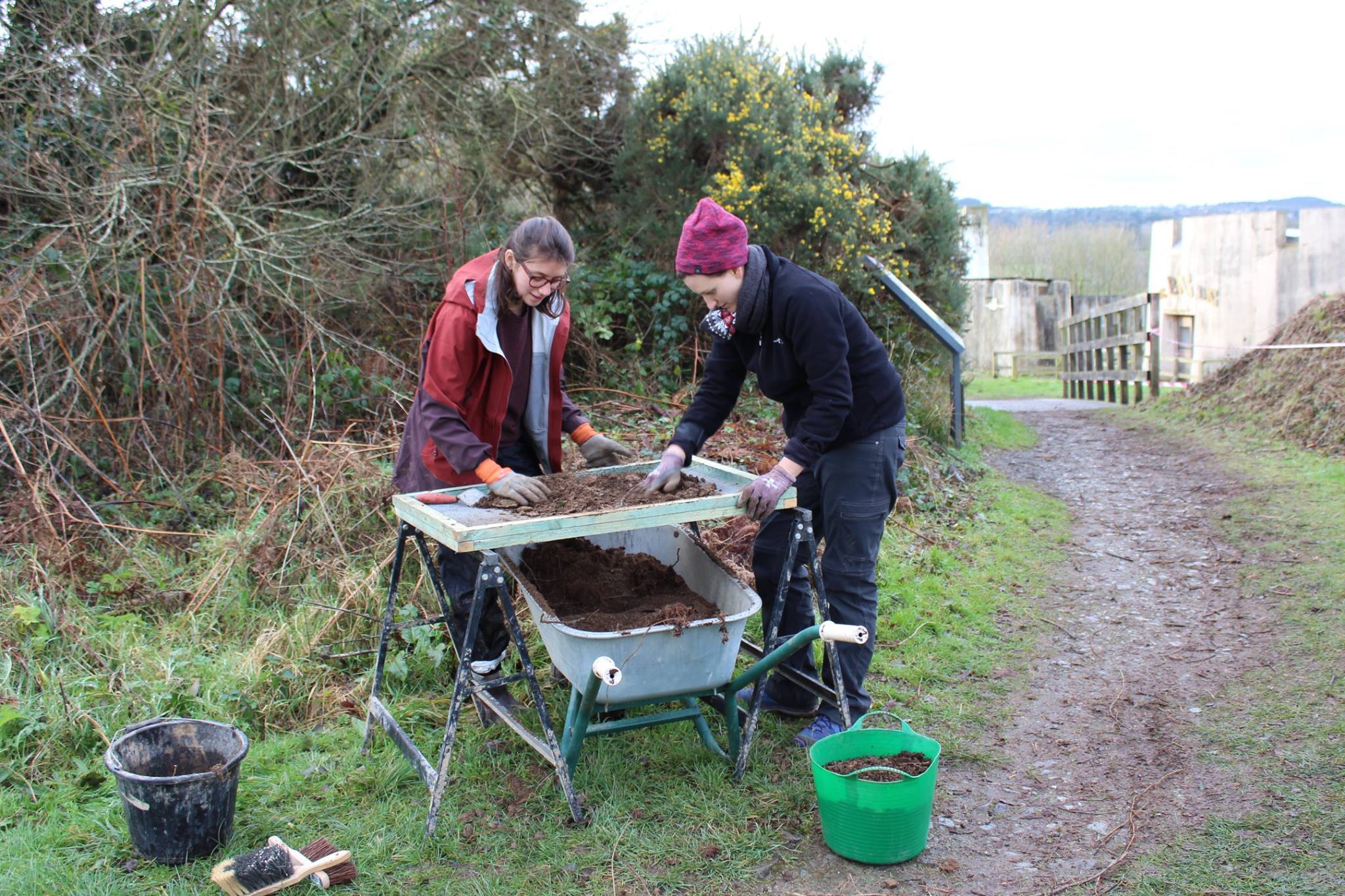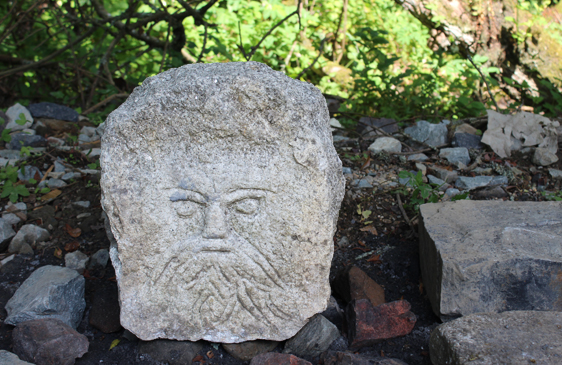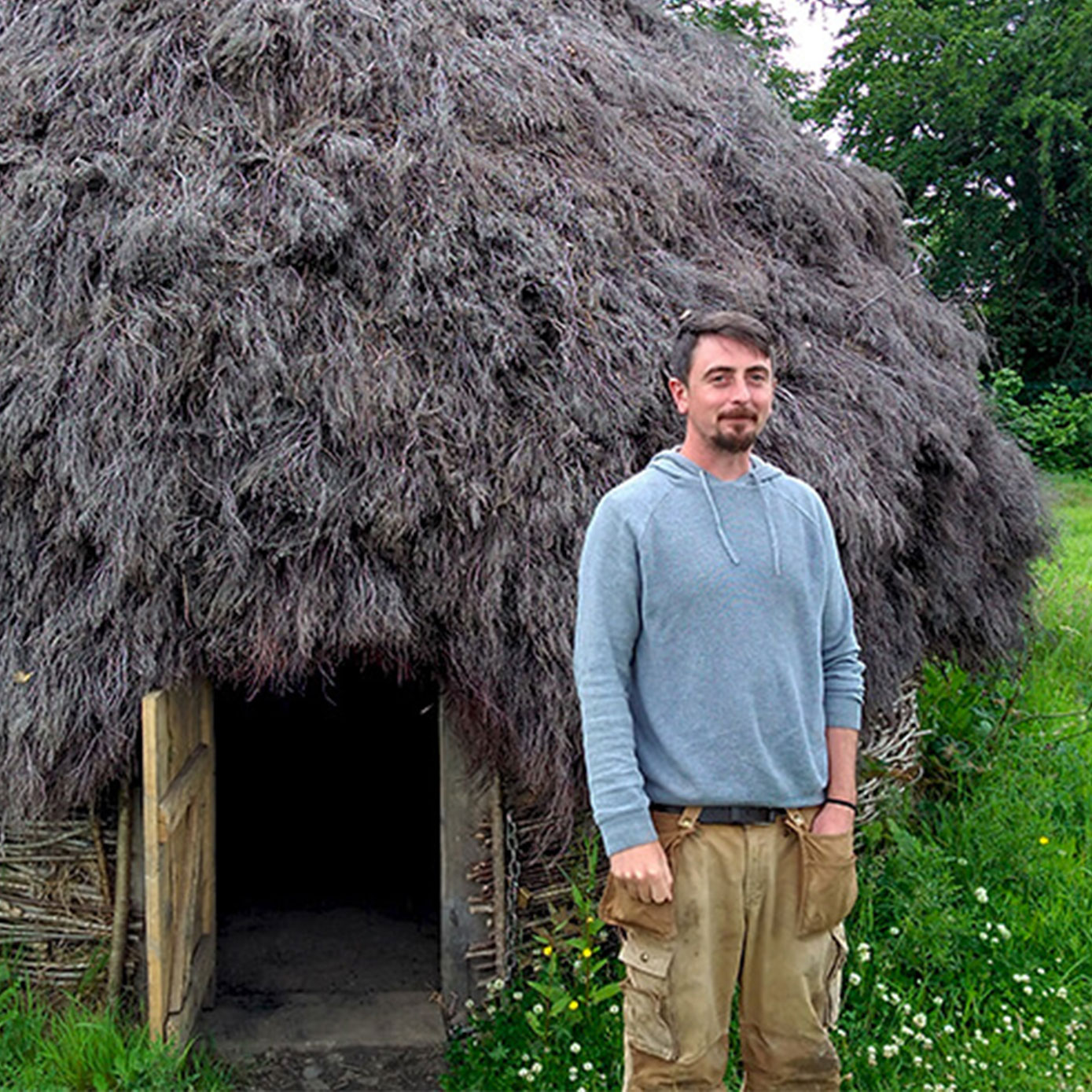All IFR field school applicants should familiarize themselves with IFR COVID-19 Practices before beginning the enrollment process. Program logistics are subject to change as health and risk management experts provide new recommendations and best practices. A Syllabus Addendum will be uploaded to each field school page and sent to all enrolled students with the latest logistical changes to their program.
Please also click on the following link to review the Irish Heritage Schools Safe Operating Procedures for COVID-19 which will be enforced in tandem with other site-specific requirements to be outlined and updated over the course of the enrollment period in the syllabus addendum.
Overview
This program provides a practical introduction to the role of crafts, technologies, and construction techniques in Ireland throughout time. Focusing on both the built environment and materiality in the medieval period, students will actively participate in a range of bespoke, experimental archaeology workshops and projects. Students will be equipped with a general understanding of medieval society, with a specific focus on the role of technologies and materiality in people’s lives in that time period. In addition to archaeological knowledge, students will build more general ‘life-skills’ such as creativity, problem solving, teamwork, time management, and resourcefulness as well as project design and implementation.
What makes this program especially unique is its collaboration with a leading archaeological research project – Digging the Lost Town of Carrig. Students will learn methods in experimental archaeology adjacent to an authentic ringwork castle (the Carrick ringwork) within the confines of the Irish National Heritage Park (INHP) in Wexford, southeast Ireland. This ringwork is one of Ireland’s most important medieval monuments and is crucial to the earliest stages of the Anglo-Norman invasion of Ireland, being the first Norman fortification built in the country in 1169 CE. Archaeological excavations undertaken in the 1980s and by the IAFS since 2018 showed that significant evidence of the site’s medieval history is preserved below the ground – including remnants of a 12th century fort with wooden structures, 13th century stone castle, and 14th century hall and chapel. Students in the experimental archaeology program will not be excavating, but they will be actively partnering with the archaeologists. As part of the experimental archaeology program students will be given in-depth tours of the site and can expect to understand the archaeology intimately, as it is the archaeological features they will be replicating in workshops. As archaeologists uncover the history of both the site and buildings, the results will be communicated essentially in ‘live time’ to the experimental archaeology students, underpinning their projects with exceptional authenticity and increased significance.
Instructors
The directors welcome emails and inquiries about the research elements of this project. More general information (tuition, health insurance, and payment schedule) can be found under the ‘Students’ tab above. Any further questions may be addressed to IFR staff. Additional details about research, course schedule, travel, accommodation, and safety can be found on the syllabus. Contacting the directors or the IFR office is encouraged and appreciated. It may help you determine if this field school is a good fit for you.
Testimonials
Coming soon!
Tuition Includes:
- Cost of Instruction
- Cost of Academic Credit Units
- Room & Board
- All Local Transportation
- Health & Evacuation Insurance
Student Fees
This program requires an online application — there is a $25 fee to submit an application. Once admitted, a payment of the nonrefundable deposit fee is required to secure a place in the program(s). The Tuition balance (total program cost minus the deposit fee) must be paid prior to the Tuition deadline as listed above under “Course Details.” A $200 late fee will be added to all accounts not paid in full by the Tuition deadline.
Deposit: A nonrefundable $500 deposit fee is required to secure a seat in the program. This deposit is part of the total Tuition and NOT in addition to it.
Late Enrollment (payment deadline forward): A nonrefundable $600 deposit fee is required to secure a seat in the program. In addition, a $200 late fee will be added to all accounts not paid in full by the Tuition payment deadline.
Withdrawal & Cancellation Policy: If you paid the deposit fee but did not cancel your participation by the Tuition payment deadline, you are legally responsible for the full Tuition regardless of attendance at any IFR program. Please carefully read our Withdrawal & Cancellation Policy for further information.
Credit Card Processing Fee: A 3.5% processing fee is automatically incurred for all credit/debit card/online payments.
Academic Credit Opt Out: Students who wish to participate in an IFR field school without earning academic credit units may do so and receive the following discounts: $300 off a full program (4 or more weeks in length) or $200 off a short program (2-3 weeks in length).
Trip Cancellation Insurance: Please consider purchasing a travel interruption insurance policy that will cover your travel cost and the cost of the IFR program once you make a commitment to attend a field school.
Accommodations
Students will stay with local families in the County of Wexford. Home Stay students live with local families, and experience true home life in provincial Ireland. Students will be brought to the site daily. Students should understand that the host families are in rural settings, requiring taxis to reach the town of Wexford. Breakfast and dinner will be provided along with a packed lunch. Students are encouraged to avail of their free time at weekends and explore Ireland.


Travel Info
Hold purchasing your airline ticket until six (6) weeks prior to departure date. Natural disasters, political changes, weather conditions and a range of other factors may require the cancellation of a field school. The IFR typically takes a close look at local conditions 6-7 weeks prior to program beginning and make Go/No Go decisions by then. This time frame still allows the purchase of discounted airline tickets while protecting students from potential loss of airline ticket costs if we decide to cancel a program.
Students will be met at Ferrycarrig, Co. Wexford. Since students will arrive on different flights at different times of the day, we will meet all students on Sunday, June 16th, at the Irish National Heritage Park at 4:30pm. Full details on reaching the park will be provided in the online orientation once you are enrolled in the course.
If you fail to make the meeting, please call/text or email Dr. Denis Shine. You will be sent relevant contact details once you are enrolled in the course.
VISA REQUIREMENTS
Citizens of the US and Canada do not require visas to enter Ireland. You will need your passport to be valid for at least 90 days and will enter on a tourist visa.
No vaccinations are required for entry to Ireland but anyone working on this program should have an up-to-date tetanus shot.
Student Safety
The IFR primary concern is with education. Traveling and conducting field research involve risk. Students interested in participating in IFR programs must weigh whether the potential risk is worth the value of education provided. While risk is inherent in everything we do, we do not take risk lightly. The IFR engages in intensive review of each field school location prior to approval. Once a program is accepted, the IFR reviews each program annually to make sure it complies with all our standards and policies, including student safety.
Students attending IFR international programs are covered by a comprehensive Health Insurance policy that includes physical illness or injury, mental or chronic conditions. No deductible and 100% of costs are covered up to $250,000. In addition, we provide Political and Natural Disaster Evacuation policy, which allow us to remove students from field school location if local conditions change. Our field school directors are scholars that know field school locations and cultures well and are plugged in into local communities and state institution structures.
Students attending IFR domestic programs (within the US) must have their own health insurance and provide proof upon enrollment. IFR field school directors are familiar with local authorities and if in need of evacuation, local emergency services and/or law enforcement will be notified and activated.
The IFR has strong, explicit and robust policy towards discrimination and harassment in the field. If students feel they cannot discuss personal safety issues with field school staff, the IFR operates an emergency hotline where students may contact IFR personnel directly.
Call (877-839-4374) or email (info@ifrglobal.org) if you have questions about the safety of any particular program.





















